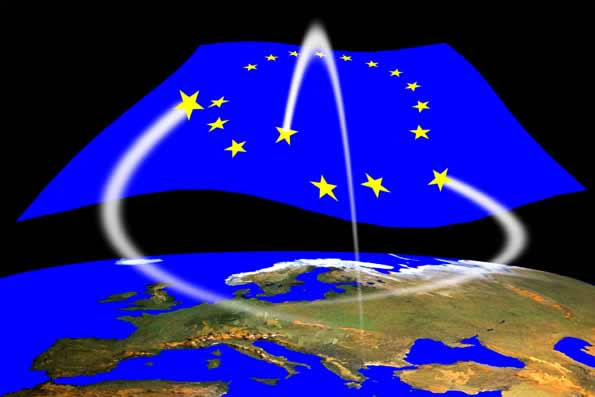
The European Commission reports on acceding countries published last week did not bring any big surprises in Macedonia. The major news was already known - the country was not granted a date to start negotiations with Brussels
The European Commission reports on acceding countries published last week did not bring any big surprises in Macedonia. The major news was already known - the country was not granted a date to start negotiations with Brussels. Better luck next year.
The report coincided with the end of the 100 days of the new VMRO - DUI government. It is a good time to reflect.
Macedonia obtained the status of a candidate country in 2005, but since then has not made a significant step toward the EU. For four years, Macedonia has been waiting to open negotiations, and is the only candidate country with such a delay in starting talks.
The European Commission's report on Macedonia this year will possibly be the harshest critique ever. Analysts have noted, the report's language is considerably stronger compared to previous years. The Commission used unusually blunt language to conclude that Macedonia does not meet the political criteria for membership.
The simple truth is that Macedonia disappointed. Officials in Skopje have complained that the real reason for the negative report is the name dispute with Greece, and that if assessed only on its achievement the country should get better marks. This is alas only partially true, if at all.
The facts are the following. Macedonia worked hard in the previous period and made great achievements. The young and energetic government led by popular Prime Minister Nikola Gruevski put all efforts on economic growth, and even though it takes time and progress is only gradual, it earned respect for its efforts. This is most clearly shown by Gruevski's very high approval ratings.
However, the typical Macedonian irresponsible political process has clouded these efforts. The early national vote in July, called after NATO's door was slammed in Skopje's face in Bucharest, was a disaster. Elections were marred by violence and irregularities.
There have always been problems with elections in Macedonia. However, this time, the problems were at an even greater scale than in the past. One should expect that the country improves in this regard over time, not that it deteriorates. As unfair as the EU may currently seem to Skopje, such elections do not become a European democracy.
In Macedonia's defence, such election irregularities do not represent the entire country. They only (repeatedly) happen in a few constituencies, and result more from the actions of a few political scoundrels than truly reflect the general democratic maturity. Alas, this explanation is still not enough. The election irregularities should stop completely. The government had to take armoured vehicles in the streets to ensure the repeat vote went smooth. What should be next, to bring out the tanks?
At least, the country showed more courage in dealing with the perpetrators this time. As expected, the DPA party of Menduh Taci, which was widely considered the major culprit for the election violence, fell from favour with its former partner in government, VMRO.
The other major remarks by Brussels also pertained to the political process. After having lost the elections, DPA decided to boycott parliament. They only returned after the recent recognition of Kosovo. Similarly the opposition social democrats (SDSM) in the Macedonian block, also opted for boycott after the televised arrest for fraud of one of their senior officials, the mayor of Strumica, Zoran Zaev. Fortunately, they quickly called off the boycott. Ever since independence, boycotting parliament (while collecting their salaries) has been a frequently practiced sport by Macedonian politicians. When things do not go your way, just stop playing. Macedonian politicians should understand that these actions are simply not serious, neither for international partners, nor the Macedonian voter. Perhaps this year's European Commission report will help them understand.
Furthermore, the European Commission criticized the "lack of constructive political dialogue" between political institutions in the country. In simple terms, the president and the prime minister should try to stop fighting. Their mutual hostility has now become normal. If they stopped arguing, journalists would be out of work; there would be nothing to report on the evening news.
It is fair to say that Brussels can also not expect the impossible. Happy consensuses are not common of democracy; claiming the opposite would flunk even a first year student in political science. However, a completely antagonized political process is not good for a country.
Overall, progress with economic reforms and the fight against corruption have been welcomed. Politics has been less than good. This is a fair assessment. Recognizing the low level of political development is probably the first step towards greater political maturity.
Contrary to what everybody wants to think of themselves, democracy is a never ending process. Brussels also needs to acknowledge democratic deficits in its own yard, such as some of the club members' shameful treatment of minorities. However, this is not the time for Skopje to bring it up. It would just appear as looking for an excuse. There are both presidential and local elections in spring. The country should make sure, once and for all, that these elections go as they should. These are simple lessons, but if not learned they could make Skopje wait for a long time before entering the European Union.






